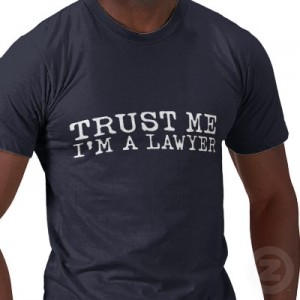You’ve been practicing for thirty years? Handled thousands of cases? Have a billion dollars in settlements and verdicts?
Impressive. But so what? Maybe you got that way by cheating your clients. You’re a lawyer and I’m scared. Just because you tell me you’re good and will help me doesn’t mean I’m ready to believe you.
What’s that? You have reviews? Testimonials? Things other people say about the good things you did for them? Or for their clients?
In their own words, not yours. Their stories, with enough details to convince me they’re telling the truth?
Much better. But hold on. I see other lawyers who also have good reviews. Maybe y’all only post the good ones and pay off the bad ones.
The struggle is real.
Hold the phone. I just remembered my friend hired you once and asked him about you. He said you did a great job for him.
I know him. And trust him. Sign me up.
Yes, there are other ways to get people to trust you. But these are the best. These are the ones you should focus on getting and deploying.
Number one, referrals from clients and from other professionals (whose clients have hired you).
Number two, reviews and testimonials from your clients and endorsements from lawyers and other professionals who know you and your reputation.
Number three, articles (by you or about you) in prestigious publications, awards you’ve received from prestigious organizations, and presentations you’ve given at prestigious events.
If you say it, they can doubt it. If other people say it, it’s probably true. If someone they know and trust says it, it must be true.








